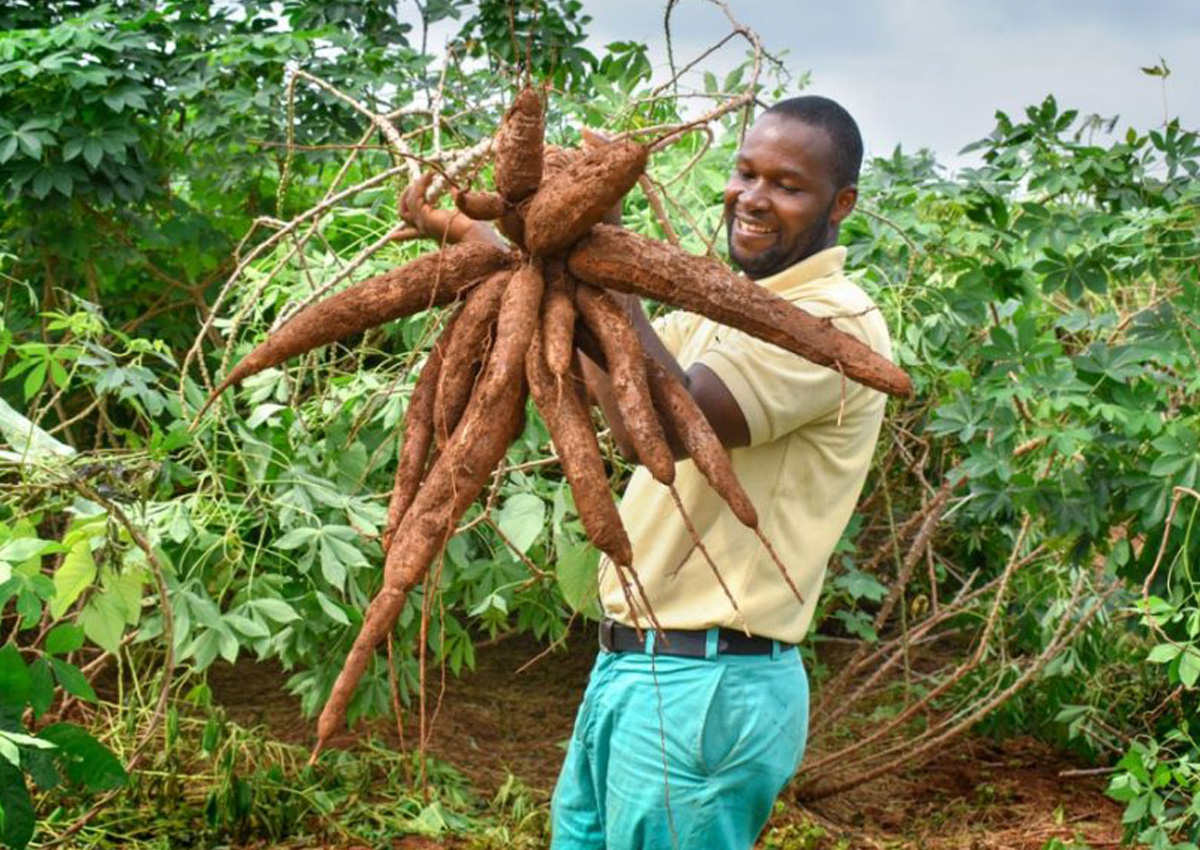
Research Reveals New Insights to Advance Cassava Breeding
September 16, 2020| |
The four-year study involved extensive multi-locational testing at four IITA field trials in Nigeria. The analysis explored genomic regions that are responsible for desirable traits in cassava, a food crop that is a primary source of calories for more than 500 million people worldwide. The scientists found more than 40 quantitative trait loci (QTL) associated with 14 traits. These are responsible for characteristics such as disease responses, nutritional quality, and yield. The traits were classified broadly into four categories: biotic stress, root quality, plant agronomy, and agro-morphology.
Chiedozie Egesi, NextGen Program Director, noted the importance of cassava as both a food and industrial crop. "A complete understanding of cassava's genetic architecture is the critical step needed to accelerate genetic improvement and bring lasting benefits to farmers and consumers who depend on this crop for food and income throughout the world," said Egesi.
For more details about the study, read the article in the IITA website.
| |
You might also like:
- Kenyan Researchers Seek Approval to Introduce Disease-Resistant Cassava
- Biofortified Cassava Shows Higher Levels of Iron
- International Team Completes First Draft of Cassava Genome
Biotech Updates is a weekly newsletter of ISAAA, a not-for-profit organization. It is distributed for free to over 22,000 subscribers worldwide to inform them about the key developments in biosciences, especially in biotechnology. Your support will help us in our mission to feed the world with knowledge. You can help by donating as little as $10.
-
See more articles:
-
News from Around the World
- ANU Book Presents Stories of Communicating Science in 39 Countries
- FAO Reports Lack of Progress in Achieving SDG
- Research Reveals New Insights to Advance Cassava Breeding
- Massive-scale Genomic Study of Almost 80,000 Accessions Reveals Wheat Diversity
- Gene Editing Produces Livestock ‘Surrogate Sires' Successfully Made Fertile
- PH Government Grants GM Corn Seeds, Farm Inputs to Farmers Association's Model Farm
- Research Team Lays Foundation for Crops with Resistance to Combined Climatic Stresses
-
Research Highlights
- cry1Ab Transgene Segregation Patterns of GM Maize Documented
-
Plant
- Research Pinpoints GDSL Esterase/Lipase Protein Vital for Anther and Pollen Development
- CRISPR-Cas9 Elucidates Seed Shattering Reduction during Rice Domestication
-
Health
- Study Finds COVID-19 Virus Remains in Stool Samples
- Researchers Discover SARS-CoV-2 Uses Heparan Sulfate to Get Inside Cells
-
Read the latest: - Biotech Updates (January 21, 2026)
- Gene Editing Supplement (January 28, 2026)
- Gene Drive Supplement (February 22, 2023)
-
Subscribe to BU: - Share
- Tweet

